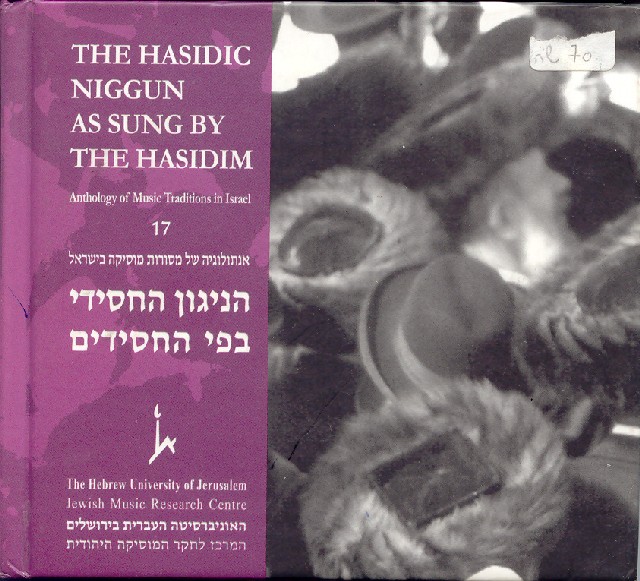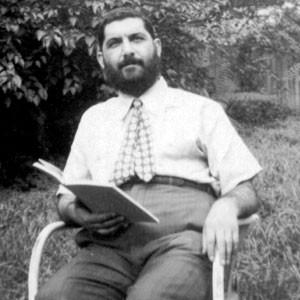2004
19. "Omar Shirah"
David Mastboim, Jerusalem, 11 October 1961.
I utter song before my Creator in awe / with gravity, and I don a garment of fear.
Within my heart I build a sanctuary far His glory / and offer my only soul to Him in sacrifice.
I humble my pride before His magnificent light, / I see His name, I shrink in fear.
Contrite and Jowly of spirit am I before Him, / I tremble Jest I sin against Him.
My fat and my blood I offer in sacrifice / upon His altar and minister to Him.
A niggun of Sanz Hasidim for Simhat Torah, attributed to the founder of the dynasty, R. Hayyim Halberstam (1793-1876). In the Bobov and Kloyzenberg communities (both offshoots of Sanz), the Rebbe sings this melody to the words of a piyyut entitled "Omar shirah" ('I utter song"). This is done on the eve of the second day of the festival (in the Diaspora), before the haqqafot but after the Hasidim have sung the verses of "Attah hor'eita la-da'at" (together with the ba'al teffilah). The text "Omar shirah" is an alphabetical acrostic, taken from the ethical text Sefer Haredim by R. Eleazar Azikri (chap. 7), with some verses added. While the Rebbe is singing, the congregation hums the melody without the text. (The custom of singing the piyyut and the additional verses before the haqqafot is an innovation of the founder of the dynasty.) At the end of each stanza, the initially rhythmical melody becomes a recitative, in the way ba'alei-tefillah generally sing the end of a section. In this recording the five first verses of the piyyut are sung.
The niggun is very popular among Bobov Hasidim, as indicated by the fact that their badkhonim use it, with the opening words "Oymar shiroh" (Ashkenazic pronunciation of "Omar shirah") to open the rhymed verses they sing at the Tish on the Purim festival. In the synagogue of the Batei Rand neighborhood in Jerusalem - the center of the Sanz Hasidim in that city - the tune is sung without words during the Simhat Torah haqqafot after the verses "Attah hor'eita la-da'at," while the cantor recites various texts before the haqqafot. Some also used to sing it on Passover night at the seder table, together with Psalm 136 ("Hallel ha-gadol"), and Mendel Brichto (see above, no. 3) used to sing it during the repetition of the 'Amidah prayer in the Day of Atonement Morning Service, to the piyyut "Ha-adderet veha-emunah..."






